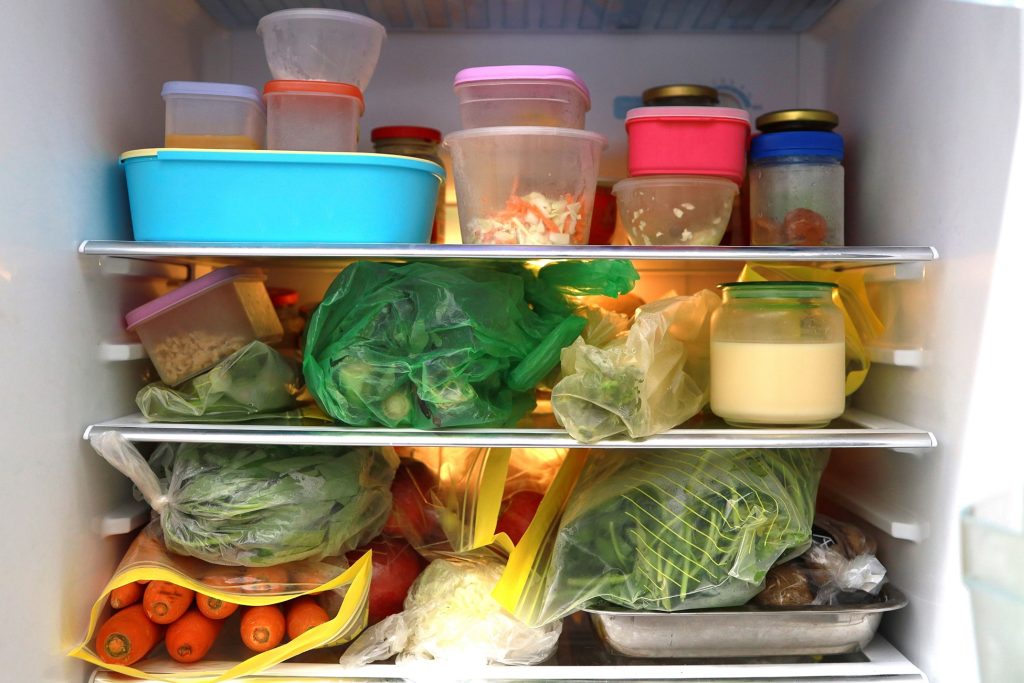Have you inspected a salad mix that you bought last week and wondered if you should toss it because it expired yesterday? If you said yes, you are not alone. About 40% of food waste happens in the kitchen, when consumers throw away foods that have passed the expiration date.

However, food and legal experts are asking consumers to reconsider their thinking.
According to an NPR Article, “The U.S. Department of Agriculture, the Food and Drug Administration, the Harvard Food Law Clinic – all say that consumer uncertainty about the meaning of food dates is part of the food waste problem. And it’s not just about wasting food or wasting the water and resources that went into making it. Food is the main thing we send to U.S. landfills.” Food in landfills is converted to methane, a highly potent greenhouse gas.
Consider all the money we are throwing way every day by disposing of foods that might be perfectly fine for consumption. For people living with diabetes on a limited or fixed income, it can really add up. In addition, people may avoid purchasing fresh fruits and vegetables if they are worried about eating it by the date stamped on the package.
Research shows that one in three bags of groceries purchased will end up in the trash due to dates stamped on food items. What do these dates mean anyway?
The federal government doesn’t require dates on any food except baby formula. According to the United States Department of Agriculture (USDA), foods are still safe for consumption after these expiration dates pass, but make sure to look out for an off odor, flavor, or texture that mean the food has spoiled and should not be eaten.
The FDA says the dates on food aren’t serving a safety role. A food and law expert, Broad Leib says, “however, you do want to pay attention to dates on food in the prepared food section, including deli meat, raw fish, unpasteurized milk and cheese.”
But for most foods, like a box of mushrooms or a bottle of ketchup, Broad Leib suggests we take a pause to look at the food. Smell and taste it to determine if it seems okay to eat. We can tell if something went bad.
Except for infant formula, dates are not an indicator of the product’s safety and are not required by Federal law.
Where do the dates come from? Since the federal government doesn’t require the dates, the “sell by” or “enjoy by” dates are determined mostly by the manufacturers. Manufacturers put the date on the package to encourage consumers to eat the food product when it tastes best, not when the food will go “bad”. They want to protect their brand and encourage the consumer to purchase their product again.
Sometimes states will get involved in determining a shelf life of a product for various reasons, including supporting local companies. For this reason, there is a lot of discrepancy from state to state, since the date isn’t based on food spoilage data. An example is that in Montana, milk has to be sold within 12 days of pasteurization. In Idaho, the milk can stay on the shelf for 23 days.
Deciphering Food Label dates:
- “Best if Used By/Before” indicates best flavor or quality. It is not a safety date.
- “Sell-By” date tells the store how long to display the product for sale for inventory management. It is not a safety date.
- “Use-By” date is the last date recommended for the use of the product while at peak quality. It is not a safety date except for when used on infant formula*.
Food makers, grocery stores, federal agencies are ready to decrease the confusion and food waste. They suggest getting rid of all the “enjoy-by, packaged on” dates and have only two options – best if used by or use by.
“Best if used by” would tell consumers this ketchup would be best by this date, but you could still eat it after.
“Use by” would tell consumers, after this date, it’s probably not a good idea to eat the mustard.
The next time you are ready to toss your salad mix or Worchester sauce, look it over, take a whiff or a taste and you will know if it’s still good to eat.
For more information, see our Protecting the Planet Resource Page.
Want to learn more about Diabetes Care? Join us for our
Virtual DiabetesEd Training Conference
30+ CEs
Airs October 12-14th, 2022
Your team is invited to our Virtual DiabetesEd™ Training Conference! Set your team apart and prepare for diabetes certification!
Join this state-of-the-art conference taught by content experts, Diana Isaacs, PharmD, BCPS, BCACP, BC-ADM, CDCES, Beverly Thomassian RN, MPH, CDCES, BC-ADM, and Ashley LaBrier who are passionate about improving diabetes care.
?Group discounts are available!*
Download Course Flyer | Download Schedule
Join us LIVE for this Virtual Course and enjoy a sense of community!
Team of expert faculty includes:
- Diana Isaacs, PharmD, BCPS, BC-ADM, BCACP, CDCES – Educator of the Year, 2020
- Coach Beverly Thomassian, RN, MPH, CDCES, BC-ADM
- Ashley LaBrier, MS, RD, CDCES, Diabetes Program Coordinator
Don’t worry if you can’t make it live. Your registration guarantees access to the recorded version in the Online University.
All hours earned count toward your CDCES Accreditation Information
Sign up for Diabetes Blog Bytes – we post one daily Blog Byte from Monday to Friday. And of course, Tuesday is our Question of the Week. It’s Informative and FREE! Sign up below!
The use of DES products does not guarantee the successful passage of the CDCES exam. CBDCE does not endorse any preparatory or review materials for the CDCES exam, except for those published by CBDCE.









